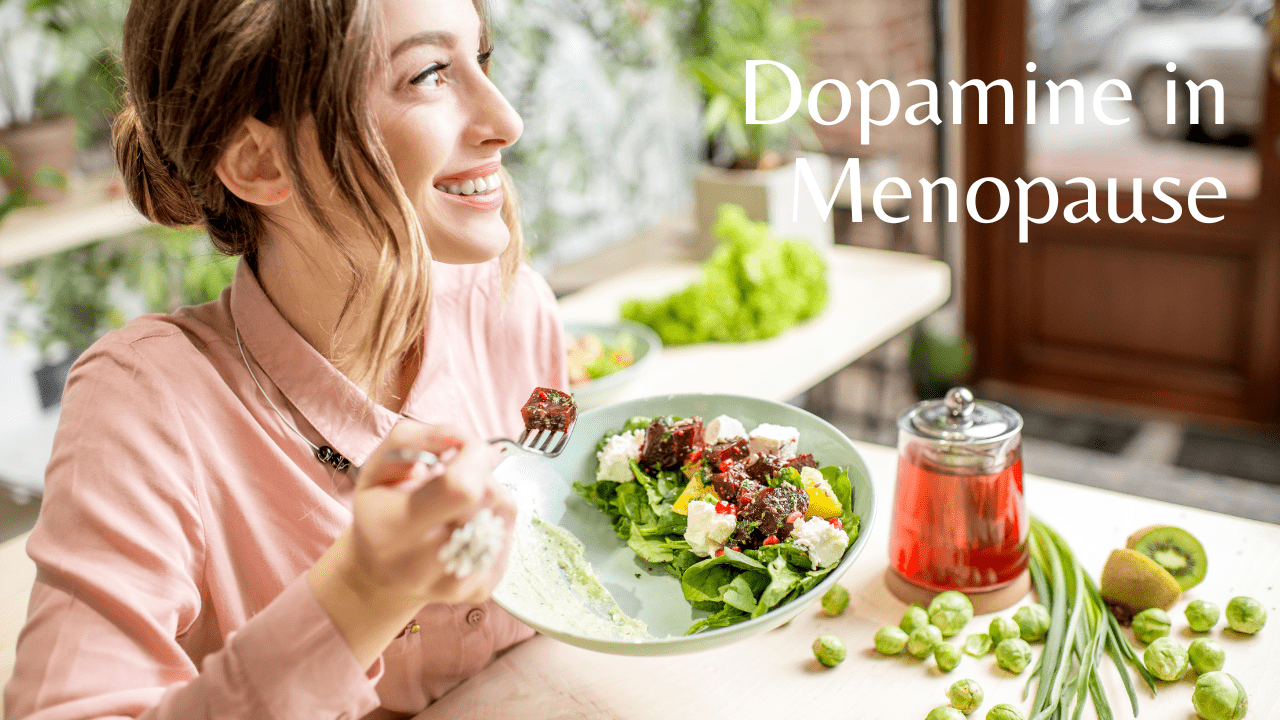
Dopamine in Menopause
November is often considered the month when we can acknowledge and be grateful for the positive things in our lives.
It’s a month where people around the world can come together to give thanks, whether it’s to celebrate religious or seasonal holidays.
It’s those emotional connections with loved ones and friends at a special time of year that are so rewarding and pleasurable.
So, have you ever considered how our bodies create these pleasurable experiences? Well, Dopamine plays a big part, that’s why it is known as the “feel-good” hormone!
let’s consider Dopamine:
Dopamine forms part of the reward system for human beings. From an evolutionary point of view, this system rewards us for surviving, finding food, water, shelter, and reproducing. It’s for this reason that our brains are hard-wired to search for behaviors that give us pleasure and there is a large release of Dopamine. We feel good so we seek more of that feeling.
Interestingly sugar and junk food also cause a similar release of Dopamine, and this is why they can become so additive
Oestrogen plays a role a positive role both in the production of Dopamine and it also slows it slows its degradation.
When we look below at the signs of low Dopamine it is interesting to note that these are symptoms commonly associated with menopause:
- Tired
- Unmotivated
- Unhappy
- Memory loss
- Mood swings
- Sleep problems
- Poor concentration
- Low sex drive.
So, during menopause when estrogen starts to drop it is naturally going to reduce our levels of Dopamine affecting how we move, and how we remember things, It impacts our motivation to undertake tasks and our general sense of pleasure and happiness, so what can we do about it?
I’d recommend considering:
- Eat protein-rich food such as turkey, beef, eggs, dairy, soy, and legumes.
- Foods high in magnesium and an amino acid called Tyrosine. These are the building blocks of dopamine synthesis.
These include:
- Almonds
- Apples
- Avocadoes
- Chocolate
- Bananas
- Beets
- Green tea
- Seeds
- Tomatoes
- Turmeric
- Watermelon.
Probiotics can be Incorporated into your diet as well, including Yogurt, Kefir, and Sauerkraut. Pickles, Cottage Cheese, Miso.
Exercise regularly with an activity that gives you pleasure, makes you happy, and makes you smile
Meditation helps increase Dopamine levels.
Massage and human touch is a great comforter as is playing or stroking a loved pet.
Listening to music helps stimulate dopamine release in your brain.
Sleep can be tricky if you are menopausal, this was probably one of my most challenging symptoms during my own menopause transition. Think about sleep hygiene! this is probably a whole newsletter, so we keep this for another time.
—————–
If you’d like to find out more about Dopamine and menopause, click here.
To find out more about how to increase your Dopamine levels, click here.
